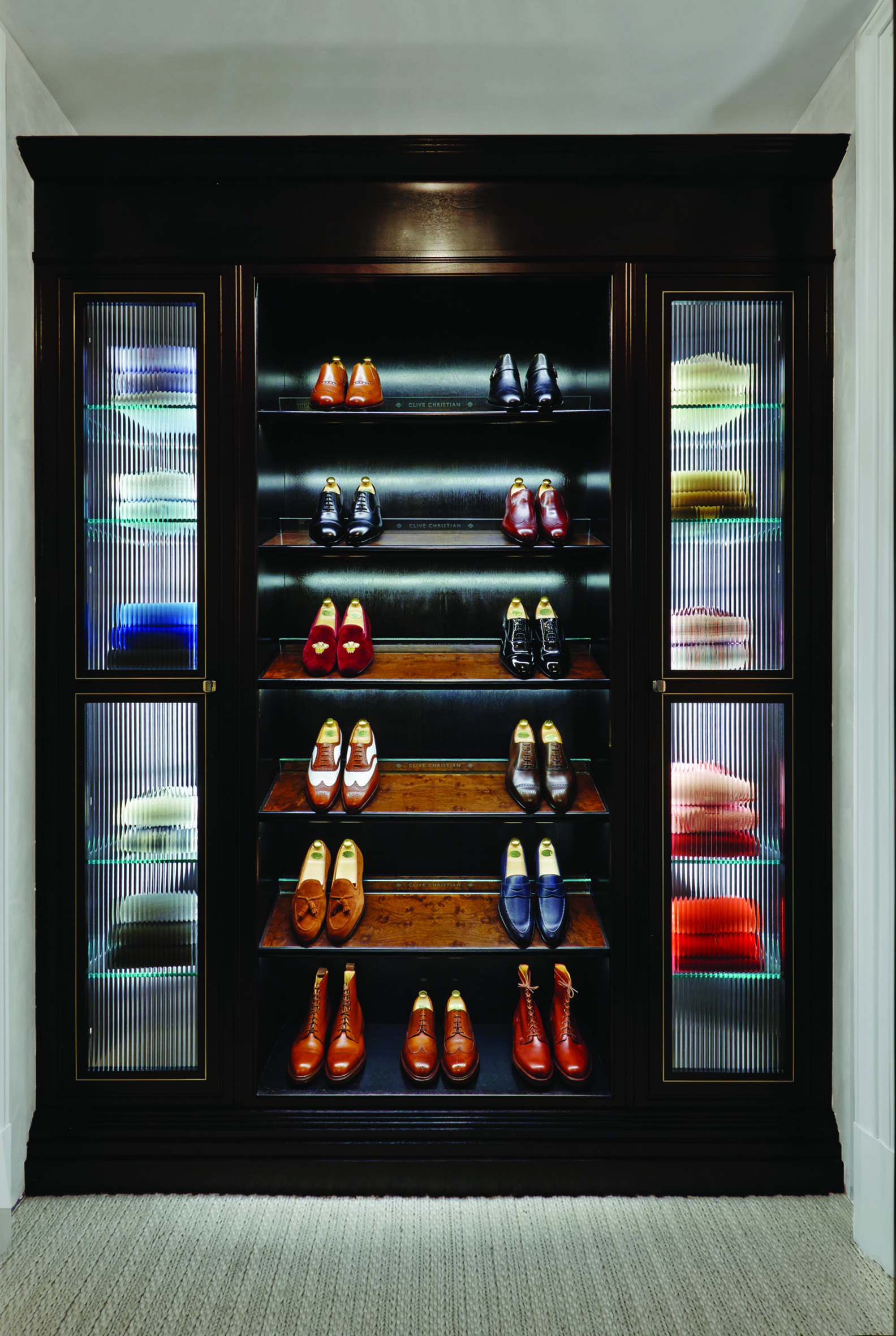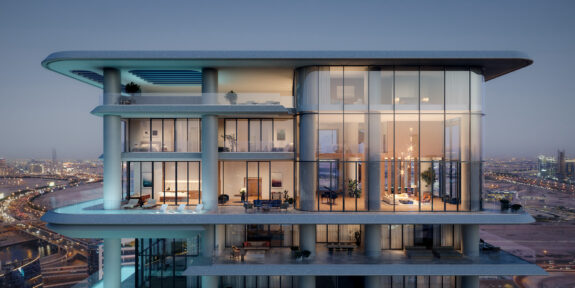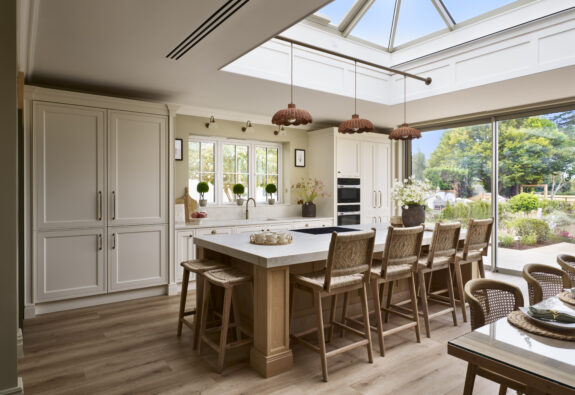All Dressed Up with Clive Christian
A coveted statement space and inner sanctum, the dressing room has become an essential element of any high-end interior.
It’s a place to pull together the perfect outfit, whether you’re heading to training, to drinks, or to the airport. Thoughtful design and premium materials mens you can keep suits, shirts and shoes in immaculate condition while securing valuables like watches, jewellery and cufflinks in custom-built safes.
But this most intimate of rooms is no longer restricted to sartorial pursuits, as a growing demand of his-and-hers dressing rooms indicates. This newly shared space is now being designed for comfort and pleasure as well as practicality – many dressing rooms incorporate seating, entertainment and even a dry bar or coffee machine. Add the latest tech-enhanced features like heated drawers and Sub-Zero drinks stations, and you’ll soon have yourself a space you’ll never want to leave.
We caught up with Oliver Deadman, Head of Design at Clive Christian Furniture, to discuss designing your first dressing room and wardrobe, trends he’s seeing in the space and what can be expected fro brands upcoming London Townhouse launch.
Let’s start at the beginning, what is the best wood type to use in wardrobe design?
Speaking historically, the best timber to use for clothes storage is cedar, particularly cedar of Lebanon, which has fantastic anti fungal and pesticide qualities. This means you can safely store your winter cashmere without the threat of moths. We have recently produced a lined sub-terrain clothes store for a London client, which was lined in cedar of Lebanon. A particularly nice project, this was a prized gem for the gentleman owner who is a very proud Lebanese patriot. The raw material cannot legally be cut down, which makes it very precious – the tree must fall naturally.
Design wise, what’s the fist step?
Understand usage. As with all our clients work, dressing spaces are extremely personal. How do you want to use it? Who do you want to be in the space with? At what times of day? All these factors hugely affect the flow and specification.
What trends are you seeing now?
Collectors – whether sunglasses, hats, watches, shoes, or handbags – a huge number of our clients are collectors and we’re integrating more ways of displaying protecting, and preserving their finds. Whether it be designing moveable shelves that can change and stagger in height depending of the size of an item or low-iron presentation glass. We are serially integrating custom-built safes.
Comfort in the dressing room; integrated seating, dry bars, entertainment systems, is also something we’re seeing of late. These spaces are being designed to spend time in, and they are evolving into entertaining spaces – much as we saw the kitchen evolve all those years ago.
What new tech have you been integrating?
We have seen an influx in dedicated decorative security. A fine example of this is the Buben & Zorweg safe which is to feature in the new Clive Christian Furniture Townhouse, housing watch winders, jewel pads and currency drawers all behind the finest quilted leather and German steel. In LA we recently specified a safe product, which lives discreetly behind push-to-open, mechanically operated full-length mirror. On a small scale we have a fast-drop integrated drawer safe, which allows clients to drop keys, daily jewellery, wallets, passports, etc. – operated by fingerprint recognition.
Appliances are becoming more present as spaces become more entertainment-led. We’re integrating beverage centres (Sub-Zero), Kaelo bottle systems within islands and even warming drawers used to preheat your linens and bathrobes.
Is there any advice you’d give someone around the internal cabinetry design?
As with most modern approaches to room layout, functional aspects are neatly hidden to preserve clean-cut decorative outer linework. Drawer separation, cable management for beauty appliances, pullout/up/down storage (for increased accessibility) – even dual-sided cabinets. Interior options are about balance, increasing functionality and workflow – without detracting from the desired aesthetic.
There’s a large dressing room going into the new London Townhouse. Can you tell us a little bit about this? What specialist features have you included?
The room plays a trick on the eye – a large central opening appears to cast a reflection of the cabinetry from left to right. Each space (hers and his in this instance) features a fitted tall run of metro deco inlay furniture with a central dressing island. Hers is frosted maple, whole his is black walnut to create a fantastic yin yang effect. Hers concentrates on decorative storage for shows, bags and long flowing garments (through fluted glass), while his has a beautiful central feature of the Buben & Zorweg leather-appointed safe.
Do you find yourself designing any specialist design details in the dressing rooms – marquetry or other features?
The dressing room lends itself very well to personalisation. This is ever present in the fashion industry – we naturally adopt terminology like ‘tailored pieces’, ‘bespoke design’, ‘client monogram’ – we could quite easily be discussing a suit, when in reality it is about the space it is housed within. Why wouldn’t you want to adopt the same character and level of detail? A previous conversation I had when discussing a client brief likened the cabinetry in question to a Paul Smith suit: business on the outside, party on the inside! Cabinetry can be customised with bold leather, exotic veneers and glass work to pack a discreet statement.
What feature would you have in your own dressing room?
I think the integration of creature comforts within the space is fantastic, bringing the feel of a hotel stay to the everyday. A dry bar for the evenings, coffee facilities for the mornings, all set just off an adjoining wet room – with soft music and a comfy chair arrangement… blissful.

Want Clive Christian to design your dressing room?
Book your consultation to get started: [email protected]


